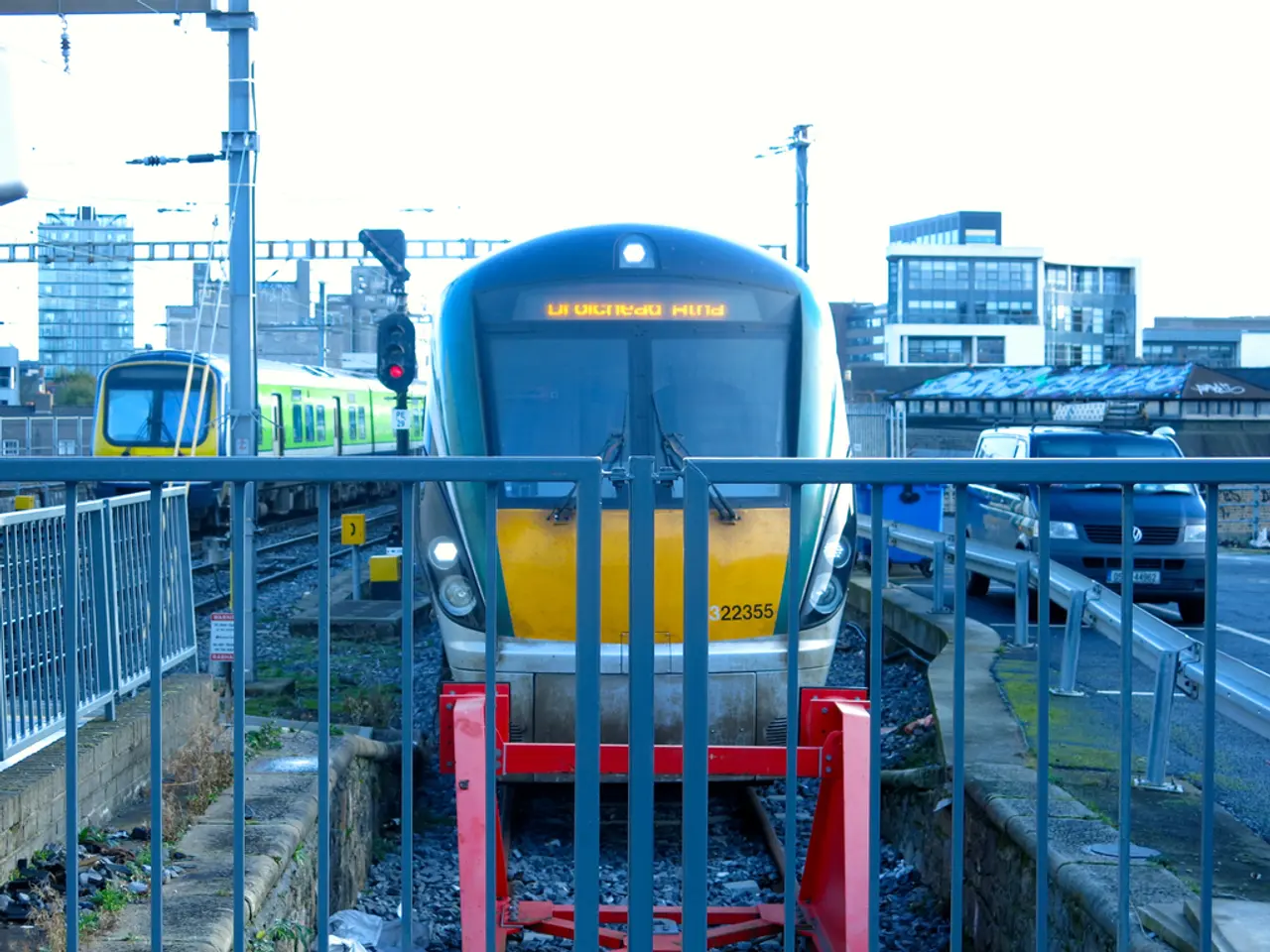Insufficient funding poses threats to ongoing railway construction ventures
The German railway network is facing significant budget constraints and funding challenges that pose risks of delays and potential scaling back of projects. Despite these challenges, key infrastructure projects are still planned for rollout by 2025 to 2030.
Lutz, the railway CEO, emphasized that maintenance and renewal of existing infrastructure always come before new and expansion projects. This approach is crucial as the current investment backlog is estimated at around €215.7 billion, a funding gap that indicates ongoing budgetary pressure.
The German government has acknowledged infrastructure's critical importance and set up a special investment fund, allocating €100 billion to states and municipalities. However, this is still insufficient to close the current investment backlog. Excessive bureaucracy and a lack of sufficiently investable projects have also contributed to market inefficiencies around German infrastructure investments.
Despite these challenges, some key projects are proceeding on schedule. Deutsche Bahn plans to launch new services like the Talgo ICE L trains by the end of 2025, running between Berlin and Cologne. On a broader European scale, projects like Rail Baltica, though facing delays, reflect risk factors relevant to large rail projects in the region.
One of the most significant projects in Germany is the new line from Frankfurt to Mannheim. This line is intended to significantly reduce travel time and enable many more connections. However, despite a 500 billion special fund for infrastructure, the new line Frankfurt-Mannheim is likely to be severely endangered. The project is likely to cost billions, but the money has not been planned yet.
The Federal Ministry of Transport is advocating for additional funding for new and expansion projects in the budget negotiations for 2025, 2026, and the special fund. Dirk Flege, CEO of Allianz pro Schiene, emphasizes the need for the federal government to invest in the existing network and build new routes for more punctuality. Neele Wesseln, CEO of the freight railways, states that the current network capacity is insufficient to absorb growing freight traffic and that new construction and expansion are necessary to increase performance capacity for freight and passenger transport.
The "Germany timetable" aims to connect main axes of long-distance traffic at half-hourly intervals, improving transfer opportunities and reducing travel times. Small projects, such as the electrification of existing routes, can also significantly increase the performance capacity for freight and passenger transport. A reliable infrastructure planning that firmly schedules and reliably finances the expansion and new construction is needed, according to Dirk Flege.
The draft budgets for 2025 and 2026, along with the financial plan, are currently in the parliamentary procedure. The spokesperson for the Federal Ministry of Transport stated that speculations about individual projects are futile as long as the budget has not been passed. The new line Frankfurt-Mannheim is not guaranteed to enter the construction phase, despite its potential to significantly reduce travel time and enable many more connections.
In summary, while budget constraints and bureaucratic inefficiencies impose significant risks for delays and scaling down German rail expansion projects, critical lines and new train deployments are still planned for rollout by 2025 to 2030. The federal government’s special fund and potential private investment will play key roles in mitigating these risks but will likely not eliminate them entirely.
The CEO of Deutsche Bahn, Lutz, is planning to introduce new services like the Talgo ICE L trains by the end of 2025, running between Berlin and Cologne, despite the current budgetary pressure. On the other hand, the new line from Frankfurt to Mannheim, intended to significantly reduce travel time, might face budgetary challenges due to its high cost.








